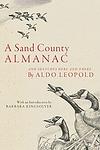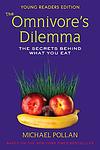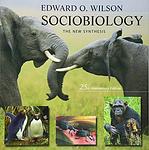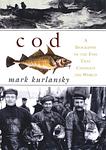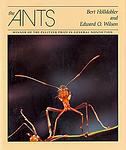The Greatest American "Life Sciences" Books of All Time
Click to learn how this list is calculated.
This list represents a comprehensive and trusted collection of the greatest books. Developed through a specialized algorithm, it brings together 300 'best of' book lists to form a definitive guide to the world's most acclaimed books. For those interested in how these books are chosen, additional details can be found on the rankings page.
Genres
The "Life Sciences" category in books encompasses a broad range of disciplines that study living organisms and life processes. This includes fields such as biology, botany, zoology, microbiology, genetics, biochemistry, and ecology, among others. Books in this category may delve into the intricate mechanisms of the cell, the complex interactions within ecosystems, the genetic blueprints that dictate the traits of organisms, or the evolutionary processes that have shaped life on Earth. They can range from introductory texts for students to advanced research publications for specialists. The Life Sciences category is essential for anyone seeking to understand the natural world, from the molecular level to the biosphere, and it serves as a vital resource for students, researchers, and professionals in health, agriculture, conservation, and biotechnology.
Countries
Date Range
Reading Statistics
Click the button below to see how many of these books you've read!
Download
If you're interested in downloading this list as a CSV file for use in a spreadsheet application, you can easily do so by clicking the button below. Please note that to ensure a manageable file size and faster download, the CSV will include details for only the first 500 books.
Download-
1. The Double Helix: A Personal Account of the Discovery of the Structure of DNA by James D. Watson
This book is a personal account of the race to discover the structure of DNA, told from the perspective of one of the co-discoverers. It provides an insider's view of scientific research, the collaboration and competition, the dedication, the doubt, the exhilaration of discovery, and the often fraught relationship between science and the rest of life. The book also explores the personalities, quirks, and conflicts of the scientists involved in the groundbreaking discovery.
-
2. Sexual Behavior in the Human Male by Alfred C. Kinsey
This book is a groundbreaking scientific study that provides an in-depth analysis of human male sexual behavior. It presents a comprehensive survey of male sexual activities and preferences, based on thousands of interviews and case studies. The book challenges many societal norms and taboos of its time by revealing the diversity and complexity of male sexual practices. It also explores the psychological, social, and biological factors that influence male sexuality.
-
3. The Clan of the Cave Bear by Jean M. Auel
This novel tells the story of a young girl named Ayla who, after an earthquake kills her family, is adopted by a tribe of Neanderthals known as the Clan. Ayla struggles to fit in with the Clan due to her physical differences and advanced cognitive abilities. Despite these challenges, she learns their customs and ways of life, and even becomes the apprentice of the Clan's medicine woman. The story explores themes of survival, acceptance, and the clash between cultures and species.
-
4. The Mismeasure of Man by Stephen Jay Gould
The book is a critical analysis of the history of scientific racism and biological determinism, the belief that social and economic differences among human races, sexes, and classes are inheritable, inevitable, and natural. It challenges the idea that intelligence can be measured accurately and placed in a single, linear scale. The author refutes the arguments of those who support these theories, arguing that they are based on flawed methodologies, biased data, and unverifiable assumptions. Instead, he proposes that intelligence is multifaceted and cannot be quantified simplistically.
-
5. The Snow Leopard by Peter Matthiessen
"The Snow Leopard" is a travelogue that recounts the author's two-month journey in the Himalayas with naturalist George Schaller. The duo trek through the rugged and remote mountains of Nepal on a quest to study the rare blue sheep and possibly spot the elusive snow leopard. The book is as much a spiritual journey as it is a physical one, with the author seeking solace and understanding following the death of his wife. The narrative explores themes of grief, nature, and Buddhism, offering a poignant and introspective look at life and loss.
-
6. Jurassic Park by Michael Crichton
A billionaire entrepreneur, with the help of genetic scientists, creates a wildlife park on a secluded island filled with genetically engineered dinosaurs. When a small group of experts are invited to the park for a preview, things go awry as the security systems fail and the dinosaurs break free. The group must survive and escape the island while dealing with the dangerous prehistoric creatures and the moral implications of tampering with nature.
-
7. Guns, Germs, and Steel by Jared Diamond
The book is a comprehensive exploration of the different trajectories of human societies throughout history. It argues that environmental factors, rather than racial or cultural differences, are the primary reason why some societies developed more advanced technology and political systems. The author uses a multidisciplinary approach, drawing from fields such as geography, evolutionary biology, and linguistics, to support his thesis. The book covers a wide range of topics, including the domestication of plants and animals, the invention of writing, and the spread of diseases.
-
8. A Sand County Almanac by Aldo Leopold
This book is a compilation of nature-related essays that highlight the author's experiences and observations as a conservationist. The author provides a thoughtful and eloquent reflection on the relationship between land and people, emphasizing the importance of conservation and sustainability. Through his writings, he advocates for a 'land ethic' where humans view themselves as part of the natural community rather than conquerors of it, promoting a harmonious coexistence with nature.
-
9. The Immortal Life of Henrietta Lacks by Rebecca Skloot
The book tells the story of Henrietta Lacks, a poor African American tobacco farmer whose cells, taken without her knowledge in 1951, became one of the most important tools in medicine, vital for developing the polio vaccine, cloning, gene mapping, and more. Henrietta's cells have been bought and sold by the billions, yet she remains virtually unknown, and her family can't afford health insurance. The book explores the collision between ethics, race, and medicine; of scientific discovery and faith healing; and of a daughter consumed with questions about the mother she never knew.
-
10. My First Summer in the Sierra by John Muir
This book is a personal narrative of the author's journey through the Sierra Nevada Mountains in California during the summer. The author, a naturalist, describes in detail the stunning landscapes, flora, and fauna he encounters during his exploration. His deep appreciation for nature and wilderness is evident in his vivid descriptions and philosophical reflections. The book serves as a call to preserve and respect the natural beauty of the environment.
-
11. The Omnivore's Dilemma by Michael Pollan
The book delves into the question of what we should have for dinner. It explores the paradox of the omnivore's dilemma, detailing the food chains that link farm to table, and explaining how the industrial revolution has changed the way we eat. The book also discusses the implications of our modern diet on our health and the environment, suggesting that we should return to more traditional methods of food production and consumption. It advocates for a more conscious and sustainable approach to eating.
-
12. The Sixth Extinction: An Unnatural History by Elizabeth Kolbert
The book explores the concept of the sixth extinction, suggesting that we are currently in the midst of it due to human activity. By examining previous mass extinctions and the current rapid loss of species, the author argues that humans are causing a mass extinction event through climate change, habitat destruction, and spreading of non-native species. The book offers a sobering look at the impact of human behavior on the natural world, emphasizing the urgency of addressing these environmental issues.
-
13. The Lives of a Cell by Lewis Thomas
This book is a collection of 29 essays that explore the world of science and biology, providing insights into the interconnectedness of life on Earth. The author uses metaphors and analogies to explain complex scientific concepts, such as the similarities between Earth and a single cell. The essays cover a wide range of topics, including the behavior of bacteria, the possibility of life on other planets, and the role of language in human evolution. The book emphasizes the importance of understanding and respecting the complexity and beauty of life.
-
14. Arctic Dreams by Barry Lopez
"Arctic Dreams" is a comprehensive exploration of the Arctic region, its landscapes, wildlife, and indigenous cultures. The author combines his personal experiences from his time spent in the Arctic with historical, scientific, and anthropological insights, providing readers with a profound understanding of this remote and often misunderstood region. The book also discusses the impact of climate change on the Arctic and its implications for the rest of the world.
-
15. Microbe Hunters by Paul de Kruif
"Microbe Hunters" is a classic work of scientific literature that chronicles the pioneering work of early microbiologists. The book brings to life the groundbreaking discoveries of scientists who dedicated their lives to understanding the invisible world of microbes. These pioneers include figures like Louis Pasteur and Robert Koch, who made significant strides in the field of bacteriology. The book is a blend of scientific facts, biographical sketches, and the author's own infectious enthusiasm for the subject matter, making it an engaging read for both scientists and lay readers alike.
-
16. Sociobiology by E. O. Wilson
"Sociobiology" is a comprehensive and scholarly work that explores the biological basis of social behavior in all species, including humans. The author weaves together findings from various fields such as ethology, anthropology, evolution, and genetics to propose a new discipline - sociobiology. He suggests that social behavior, including altruism, aggression, and nurturance, is not just a product of learning and environment, but also has a genetic basis. This work sparked considerable debate and controversy, particularly regarding its implications for human behavior and society.
-
17. Genetics and the Origin of Species by Theodosius Dobzhansky
This book is a seminal work in the field of evolutionary biology that introduces the concept of genetics as a fundamental mechanism in the process of evolution and speciation. The author combines theoretical concepts and empirical data to argue that natural selection and genetic variability are the driving forces behind the evolution of species. He also discusses the role of geographic isolation in speciation and provides a comprehensive overview of the genetic basis of evolutionary change.
-
18. Cod: A Biography of the Fish that Changed the World by Mark Kurlansky
This book is a fascinating exploration of the historical, cultural, economic, and ecological impact of the codfish. It traces the role of this fish in shaping economies, sparking wars, and influencing culinary trends across centuries and continents. The book also delves into the devastating effects of overfishing and the current struggle to sustain cod populations. The narrative combines history, science, and gastronomy to present a comprehensive biography of this significant fish species.
-
19. The Mind of the South by W. J. Cash
"The Mind of the South" is a comprehensive exploration of the culture, socioeconomic conditions, and mindset of the American South. The author delves into the historical development of the South, analyzing the impact of slavery, the Civil War, and the subsequent reconstruction on the region's collective psyche. The book provides a critical examination of the South's perceived uniqueness, its racial dynamics, and the enduring influence of its past on contemporary Southern identity.
-
20. A Short History Of Nearly Everything by Bill Bryson
This book is a comprehensive exploration of scientific knowledge, covering a wide range of topics from the Big Bang to the rise of civilization. The author aims to understand how we got from nothing at all to where we are now, exploring subjects such as geology, chemistry, paleontology, astronomy, and particle physics. The book also delves into the lives of the scientists behind the discoveries, making the complex concepts accessible to the average reader.
-
21. The Ants by E. O. Wilson, Bert Hölldobler
"The Ants" is a comprehensive exploration of the biology, evolution, and behavior of ants. The book covers a wide range of topics, including the ants' origin and classification, their morphology and physiology, their communication and social organization, and their ecology. It also delves into the complex societies and intricate behaviors of these creatures, providing a detailed insight into their world. The authors use a combination of narrative and scientific explanations to make the subject accessible to both general readers and specialists.
-
22. The Immense Journey by Loren Eiseley
"The Immense Journey" is a collection of essays that explore the wonders and mysteries of nature and human existence. The author, a renowned anthropologist, shares his insights and reflections on evolution, the cosmos, and the interconnectedness of all living things. Through vivid storytelling and poetic prose, he takes readers on a journey from the microscopic world of a single cell to the vast expanses of space, revealing the profound beauty and complexity of the natural world.
-
23. A Critique of the Theory of Evolution by Thomas Hunt Morgan
The book is a scientific critique of the theory of evolution, presenting arguments and evidence against certain aspects of the theory. The author, a prominent biologist, explores the limitations and inconsistencies in the theory of evolution, challenging the widely accepted Darwinian principles. He presents alternative theories and hypotheses, backed by his own research and observations, to explain the process of species development and genetic inheritance, thereby attempting to provide a more comprehensive understanding of biological evolution.
-
24. Theory of Games and Economic Behavior by John Von Neumann
This book is a groundbreaking work that applies mathematical methods to the study of economic behavior. It introduces the theory of games, a mathematical framework for analyzing conflict and cooperation between intelligent rational decision-makers, and its implications for economic behavior. The book covers topics such as zero-sum games, utility theory, and the minimax theorem, and it has had a profound impact on economics, political science, and other social sciences.
-
25. The Diversity of Life by E. O. Wilson
This book is a comprehensive exploration of the variety and richness of life on Earth, written by a renowned biologist. It delves into the concept of biodiversity, examining its importance and the threats it faces. The author discusses the evolution and extinction of species, the complex interactions within ecosystems, and human impact on the environment. The book is a passionate plea for the conservation of the planet's diverse species and ecosystems.
Reading Statistics
Click the button below to see how many of these books you've read!
Download
If you're interested in downloading this list as a CSV file for use in a spreadsheet application, you can easily do so by clicking the button below. Please note that to ensure a manageable file size and faster download, the CSV will include details for only the first 500 books.
Download






